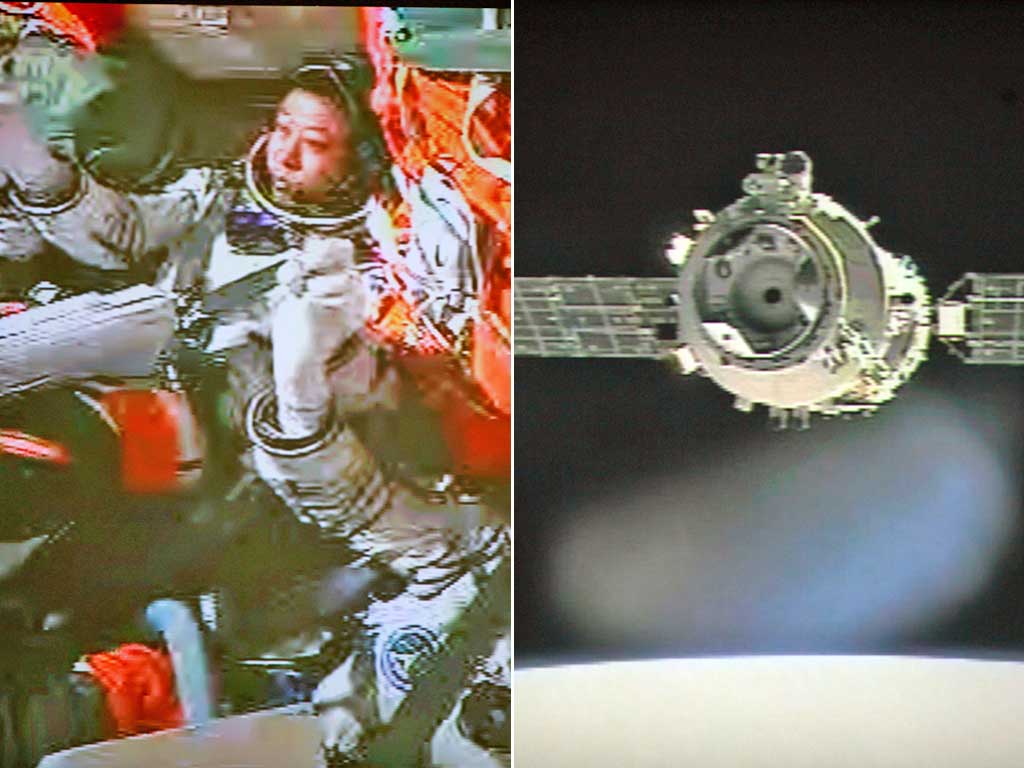
Your support helps us to tell the story
From reproductive rights to climate change to Big Tech, The Independent is on the ground when the story is developing. Whether it's investigating the financials of Elon Musk's pro-Trump PAC or producing our latest documentary, 'The A Word', which shines a light on the American women fighting for reproductive rights, we know how important it is to parse out the facts from the messaging.
At such a critical moment in US history, we need reporters on the ground. Your donation allows us to keep sending journalists to speak to both sides of the story.
The Independent is trusted by Americans across the entire political spectrum. And unlike many other quality news outlets, we choose not to lock Americans out of our reporting and analysis with paywalls. We believe quality journalism should be available to everyone, paid for by those who can afford it.
Your support makes all the difference.China took a giant step towards its ambition of building a space station by the end of the decade yesterday, with the manual docking of a manned spacecraft and an experimental orbiting module.
Space travel excites few in the West these days, but in China the space programme is regarded as a great advertisement for its technological progress. Beijing's goal is to put a man on the moon. Although China is only where the US was in the 1960s, it is gaining ground fast.
The Shenzhou 9 spacecraft briefly separated about 400 metres from the Tiangong module before re-connecting under the manual control of the crew. The event was watched live by millions on state television.
This has been a mission characterised by firsts. Liu Yang boldly went where no Chinese woman has gone before alongside two male colleagues, mission commander Jing Haipeng, 45, and Liu Wang, 43. All three astronauts, or taikonauts in China, are pilots and officers in the air force.
The docking exercise marks a key step in China's efforts to gain the technological and logistical skills to run a space lab that can house astronauts for long periods by 2020.
China has gone it alone in space because it has always been refused permission to join the 16-country International Space Programme, mainly because of US concerns about military secrets passing to China.
Join our commenting forum
Join thought-provoking conversations, follow other Independent readers and see their replies
Comments